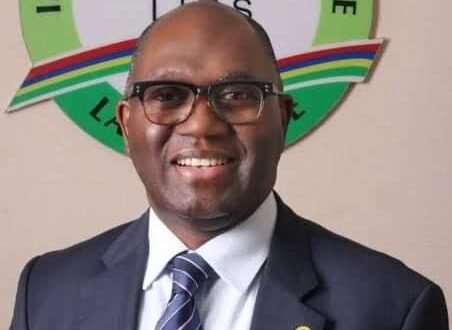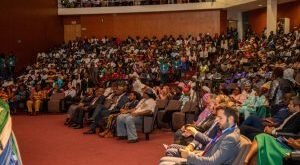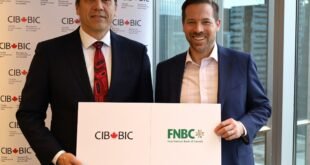Strengthening Tax Enforcement and Judicial Collaboration in Lagos
Justice Hakeem Oshodi, a judge of the Lagos State High Court, has called for the activation and full utilization of designated revenue courts to prosecute tax-related offenses within the state. His remarks were made during the Revenue Recovery Summit organized by the Lagos State Ministry of Justice, which took place at the Radisson Blu Hotel in Ikeja. The summit aimed to address the challenges of tax enforcement and foster better collaboration between the judiciary and government agencies.
Oshodi highlighted the underutilization of revenue courts, noting that many tax defaulters prefer settling out of court to avoid prosecution. “I currently sit as a judge in a revenue criminal court, and I must confess, I have not conducted any trials. Yet, I’m fully ready to work,” he stated. He also pointed out that once defaulting taxpayers are caught, they often settle quickly to avoid the risk of imprisonment.
The summit, themed “Speedy Dispensation of Revenue Cases in Court,” focused on strengthening mechanisms for tax enforcement and improving cooperation between the judiciary and government bodies. Oshodi emphasized the need for a firmer approach to tax collection, citing South Africa’s aggressive stance against high-profile tax defaulters. He also stressed the importance of synergy between the judiciary and the executive in enforcing tax laws.
Reforms and Legal Frameworks
Lagos State Attorney-General and Commissioner for Justice, Mr. Lawal Pedro (SAN), addressed the summit and stressed the need to reform the process of resolving revenue disputes. He highlighted the adverse impact of delayed revenue on critical sectors such as education, healthcare, infrastructure, and security. “When revenue is delayed or trapped in legal bottlenecks, it is the ordinary people who suffer,” he said.
Pedro cited recent improvements, including the Commercial Courts Complex in Tapa, which now hosts revenue courts, as well as provisions under the Lagos State High Court (Civil Procedure) Rules, 2019. He also referenced new enforcement powers granted under the Tax Administration Act, 2025, stating, “We have the tools. What we need is the will to use them effectively.”
Strategic Case Selection and Stakeholder Collaboration
A former Lagos Attorney-General and ex-Deputy Chief of Staff to the President, Mr. Ade Ipaye, emphasized the importance of strategic case selection and practical collaboration among stakeholders. “You want revenue recovery for the state. If you sue a shadowy figure who won’t appear in court, you are merely wasting judicial time,” he said. He called for performance-driven strategies, urging regular internal reviews with counsel and open lines of communication with the judiciary.
Ipaye also delved into the legislative history of the Lagos State Revenue Administration Law, enacted to address flaws in the earlier tax framework. He recalled that in 2006, Lagos State challenged the federal framework established by the Personal Income Tax Act, arguing that it was unconstitutional for the federal government to set up a state revenue board. As a result, the state enacted its revenue service law, asserting greater autonomy over tax administration.
Constitutional and Jurisdictional Challenges
Ipaye explained that the introduction of the Tax Appeal Tribunal in 2007 shifted dispute resolution to a federal body, complicating jurisdiction. “Taxation is a specialized area. The complexity of tax disputes, particularly when they involve facts and figures, makes them unsuitable for direct court intervention,” he noted. He also raised concerns over the design of the TAT under PITA, highlighting sections that define “the Service” solely as the Federal Inland Revenue Service.
He warned that until the Supreme Court delivers a definitive verdict, jurisdictional ambiguity over tax disputes will persist, posing risks to both state governments and taxpayers. “For now, if the tax due is uncontested, state courts and magistrates remain the proper channels for enforcement,” he said.
Enhancing Revenue Adjudication and Governance
In his welcome address, the Solicitor-General and Permanent Secretary of the Lagos State Ministry of Justice, Mr. Hameed Oyenuga, urged stakeholders to work together to expedite the legal process for resolving revenue cases. He described the summit as a vital platform for advancing fiscal governance and boosting revenue generation. “This summit provides a critical opportunity for collective reflection and strategic engagement on efficient and lawful revenue generation and recovery,” Oyenuga said.
Mr. Saheed Obafemi, a member of the Lagos State House of Assembly, called for urgent reforms to expedite revenue cases in the judiciary. He stressed that effective revenue adjudication is critical to sustaining public services. “Lagos is Nigeria’s economic hub. That’s not in doubt. Yet, our biggest challenge remains sustaining development, and the answer lies in revenue,” he said.
Obafemi praised initiatives by the state government to enhance revenue enforcement, including the Tapa Commercial Court Complex, the establishment of a revenue recovery unit in the Ministry of Justice, and reforms under the Lagos High Court (Civil Procedure) Rules 2019. He also cited federal legislation, such as the Tax Administration Act 2023, which provides new tools for tax enforcement.
Conclusion
The summit concluded with goodwill messages and a pledge of stronger collaboration, as stakeholders expressed optimism about the state’s readiness to intensify its crackdown on tax evasion through stronger judicial-executive cooperation. Participants were tasked with making actionable recommendations to help Lagos build a revenue adjudication system that is “fast, fair, and secure.”
 Info Malang Raya Its All About World News
Info Malang Raya Its All About World News




